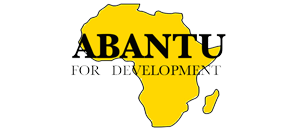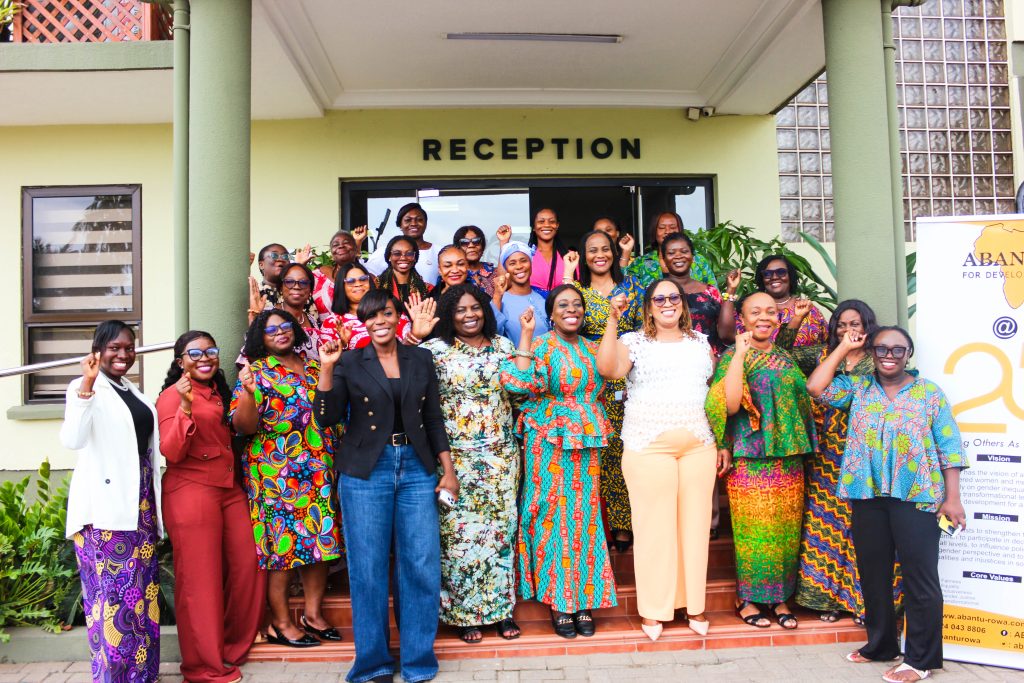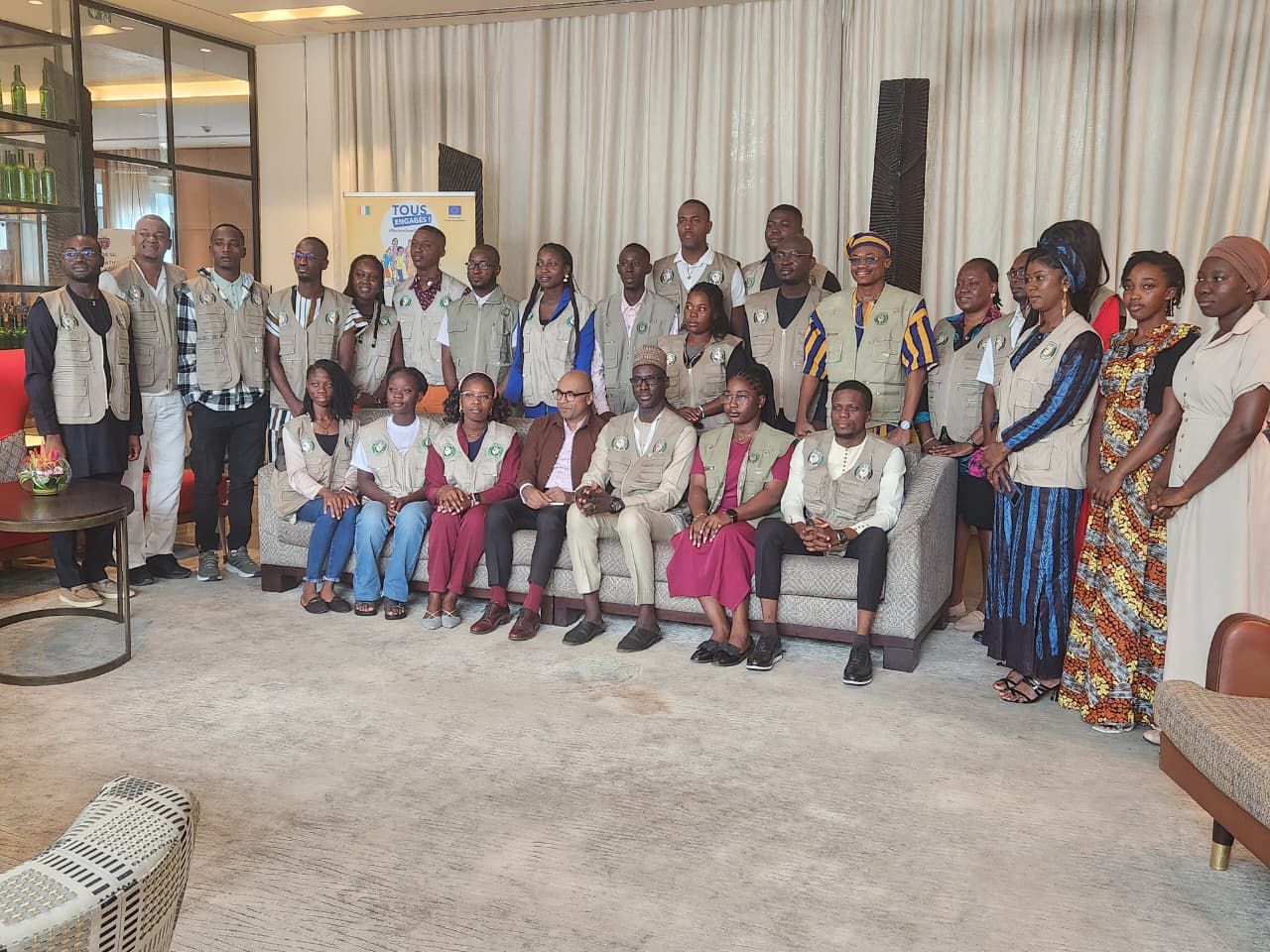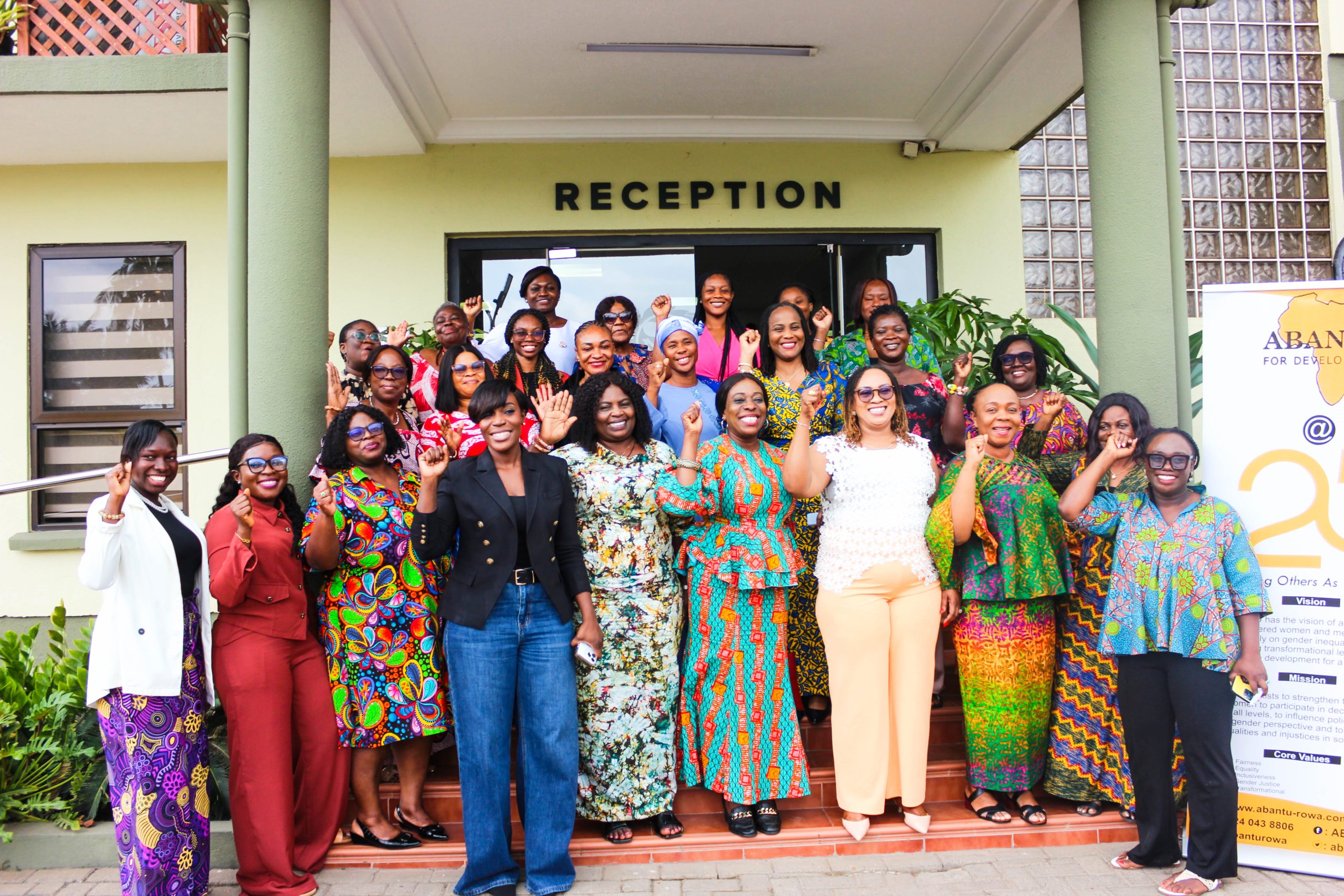On 20th August, ABANTU for Development convened a strategic engagement with women who contested for parliamentary seats in the 2024 General Elections but were not successful. The session provided a space for reflection, learning, and collective strategizing on how to sustain women’s leadership beyond the election period. Participants included former Members of Parliament, first-time candidates, political party leaders, civil society advocates, and representatives of women’s rights organisations.
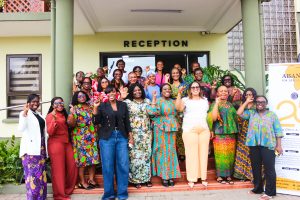
This engagement forms part of ABANTU’s broader efforts to deepen women’s political representation and strengthen solidarity among women leaders across political divides. It recognises that participation in elections, whether successful or not, is an important act of leadership that contributes to democratic development.
Recognising the Courage of Women Candidates
Executive Director of ABANTU, Dr. Rose Mensah-Kutin, emphasised that every woman who contests an election demonstrates significant courage and commitment to public service. She pointed out that although 119 women contested parliamentary seats in 2024, 78 did not win, and their contributions risk being overlooked.
“Anyone courageous enough to contest for elected office deserves recognition. Too often, attention centres only on winners, while those who do not win are forgotten. Yet, they too are leaders in their communities and vital to our democratic process,” she stated.
Dr. Mensah-Kutin noted that although the Affirmative Action (Gender Equity) Act, 2024 (Act 1121) was passed, its late passage limited its influence on the 2024 elections. She stressed the ongoing need for platforms that support women’s political participation and sustained leadership development.
Former Minister of Gender, Children and Social Protection and former MP for Okaikwei South, Hon. Dakoa Newman, commended women candidates for their resilience. She encouraged them not to view electoral defeat as the end of their political journey.
“Not winning is never the end. It can be a stepping stone to new opportunities in governance and party leadership,” she said. She further highlighted persistent obstacles such as gender-based political violence and limited access to campaign financing, calling for rigorous enforcement of the Affirmative Action Act’s quota provisions.
Former Member of Parliament for Awutu Senya East, Hon. Mavis Hawa Koomson, shared her own political journey, tracing her rise from constituency women’s organiser to Parliament and Ministerial appointment. She attributed her 2024 electoral loss to political violence and intimidation, cautioning that such practices weaken democracy and discourage young women from participating. She reaffirmed her commitment to leadership, expressing her goal of continuing party-level service.
Former MP for Evalue-Ajomoro-Gwira, Hon. Catherine Afeku, encouraged women to remain adaptable and consistent. She recounted her own electoral wins and losses, explaining how continuous learning and re-strategizing allowed her to return to public service. She urged women to invest in personal development and maintain visibility in public life.
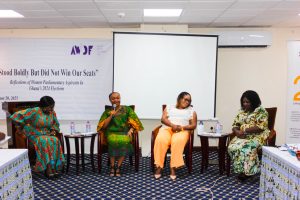
Coordinator of the Affirmative Action Law Coalition, Ms. Becky Ahadzi, highlighted the importance of the Affirmative Action Gender Equity Act in promoting women’s representation. The law sets targets for 30% female representation in public and political life by 2026, rising progressively to 50% by 2034. She noted that similar measures have produced significant results in Rwanda and Sierra Leone.
However, she expressed concerns about weak enforcement mechanisms and the absence of sanctions for non-compliance. She called for stronger accountability systems, gender equity reporting, and continued advocacy to ensure meaningful implementation.
ABANTU reaffirmed its commitment to women’s political empowerment, democratic inclusion, and leadership solidarity. The organisation will continue to facilitate platforms that support women candidates, strengthen advocacy for gender-responsive governance, and promote accountability for democratic reforms.
Women’s leadership remains vital to Ghana’s democratic growth. ABANTU stands firm in ensuring that the political journeys of women do not end at the ballot box, but continue to shape the future of governance and national development.
